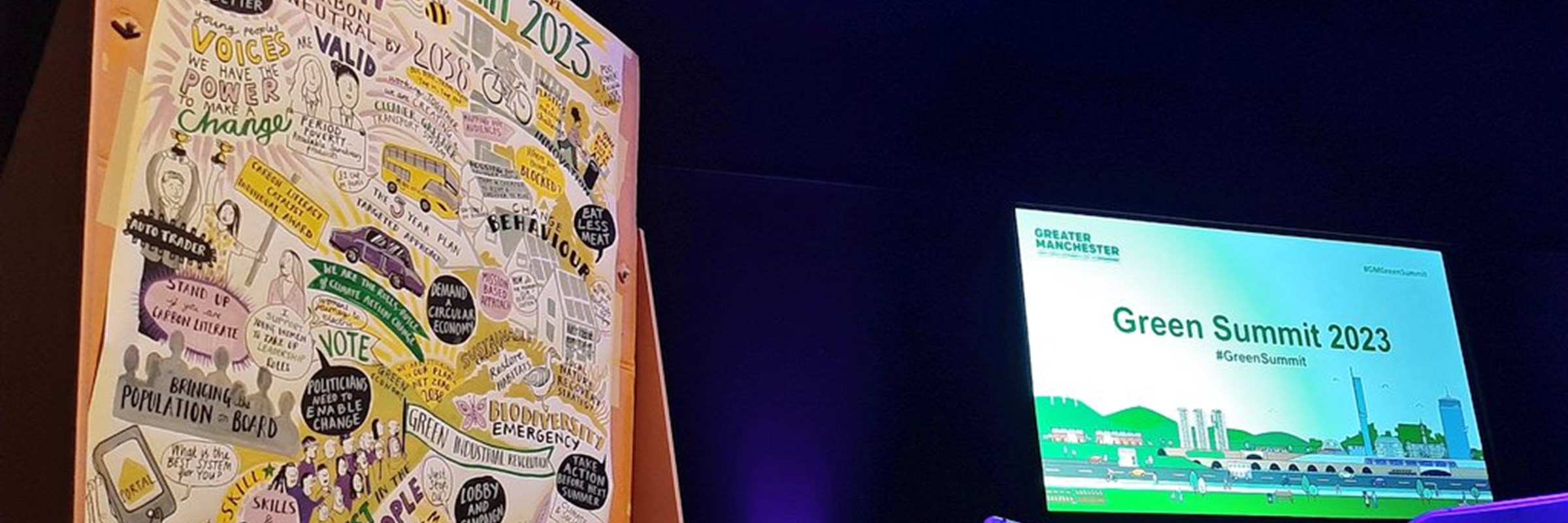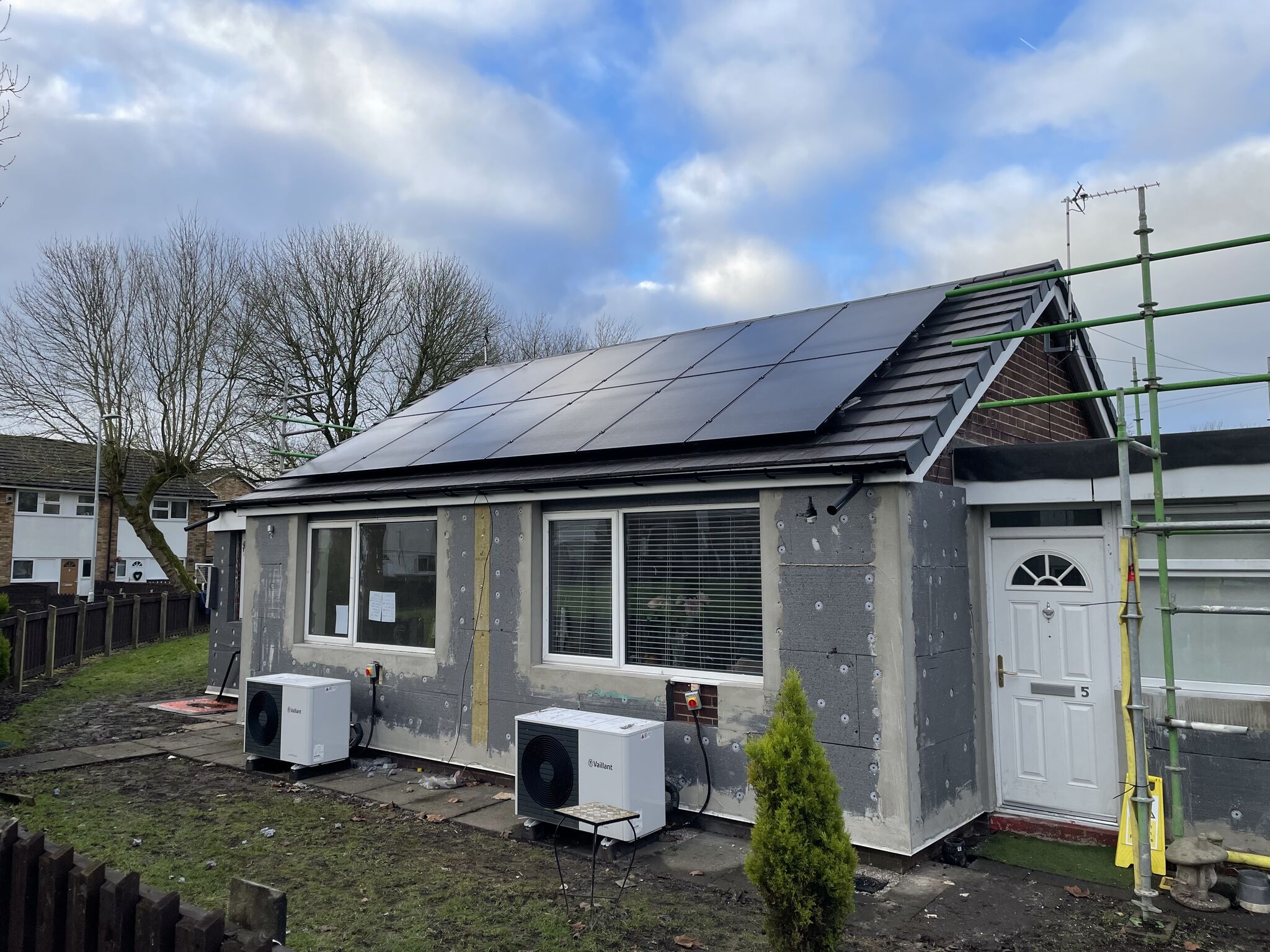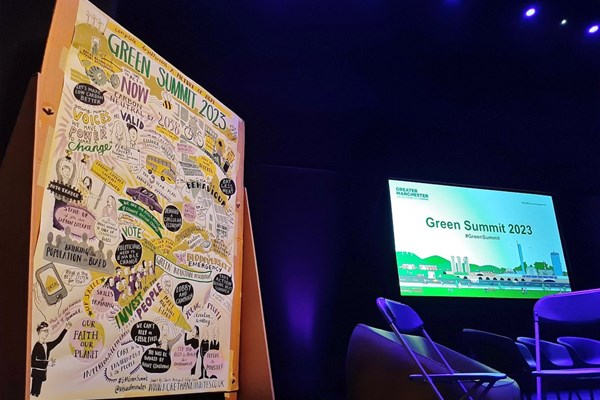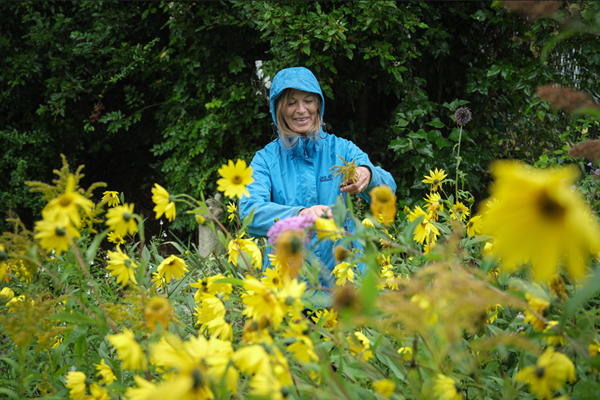
Mayor advocates for place-based approach to net zero at Greater Manchester Green Summit
- Mayor calls for “flexibility and funding” for Greater Manchester to reach its carbon neutrality goals
- Sir Alok Sharma, President of COP26, also speaks at sixth annual Green Summit
- Adoption of zero-emissions buses on Bee Network set to reduce carbon emissions by 1.1 million tonnes
Greater Manchester Mayor Andy Burnham has called for local flexibility and funding on net zero, alongside a stable and progressive national approach, at today’s Greater Manchester Green Summit.
A local, place-specific approach to net zero can deliver double the energy savings and wider social benefits for less than half of the investment costs than a national approach. Greater Manchester was the first city-region in the UK to develop Local Area Energy Plans (LAEPs) for all its districts and has now prepared a strategic outline business case for £12.5bn of investment in energy generation, decarbonisation retrofit and heat networks.
The Mayor described the Bee Network as a “pivotal moment” in Greater Manchester’s net zero journey. A total of 50 new zero emission buses entered service in Wigan, Bolton and parts of Salford and Bury after buses were brought under local control for the first time in nearly 40 years and a further 50 vehicles will be delivered in March 2024 to serve the expansion of the Bee Network. An additional 250 will be delivered in the following three years.
The adoption of zero emission buses will reduce carbon emissions by 1.1 million tonnes and contribute to the city-region's ambition for a sustainable public transport system, with a zero-emission bus fleet by 2032.
Sir Alok Sharma, Conservative MP and President for COP26, the international climate change conference hosted in the UK in 2021, also addressed this year’s Green Summit. In addition to his leadership of COP26, Sir Alok served as Secretary of State for Business, Energy and Industrial Strategy from 2020 to 2021 and Secretary of State for International Development from 2019 to 2020.
Mayor of Greater Manchester, Andy Burnham, said: “Greater Manchester remains committed to reaching our target of carbon neutrality by 2038, but to achieve this our efforts locally need to be matched by the right national government policies and investment.
“Our emissions are reducing, but not at the speed or scale required to stay within the carbon budget we set in 2019. We still believe carbon neutrality is achievable by 2038 but it will require the right funding and policies at the local and national levels, and much of what is needed is not within our influence.
“The Bee Network is a pivotal moment for Greater Manchester – not just for transport, but for our environment and clean air. With further backing support we can deliver a fully decarbonised transport system.”
A number of new initiatives and projects were unveiled at the Green Summit, including:
- Local Energy Advice Demonstrator – a £2.14m programme to provide in-person energy advice to those that might otherwise not receive or have access to it.
- Powering Our Schools – a new campaign to accelerate the installation of solar panels on 50 Greater Manchester schools, providing them with cheaper, greener energy.
- Resilient Cities Network – projects with the Greater Manchester Resilience Unit to build community resilience to climate hazards, focusing on heat and floods, in Higher Fold, Wigan, and Edgeley in Stockport.
- Integrated Water Management Plan – in partnership with United Utilities and the Environment Agency, Greater Manchester has established the UK’s first city-region scale water management plan.
- Truly Affordable Net Zero homes – standards set for the 30,000 Truly Affordable Net Zero homes to be built in Greater Manchester by 2038.
Delegates also heard about how investment in green energy generation and insulation has made more than 6,000 social homes warmer, greener and cheaper to heat. The Social Housing Decarbonisation Fund has invested more than £113m in retrofitting social homes across Greater Manchester.
As well as improvements to homes, 230 public buildings have been retrofitted or had low carbon technologies installed through the Greater Manchester Public Sector Decarbonisation scheme.
Greater Manchester is also investing in its green spaces. A total of 68 project have been backed by the Green Spaces Fund, with £2.6m of funding supporting community-led projects across Greater Manchester.
Cllr Tom Ross, GMCA Lead for the Green City-Region, said: “The Greater Manchester Green Summit provides a chance to reflect on the progress made and challenges ahead as we continue the journey to net zero. We’ve made massive strides on decarbonising transport, making homes more energy efficient, and improving our natural environment, but there’s still an enormous amount of work to be done. It’s a crucial moment for our city-region, our country and our planet. For our 2038 target to be achievable, we need everyone to play a part.”
Article Published: 03/10/2023 09:46 AM



